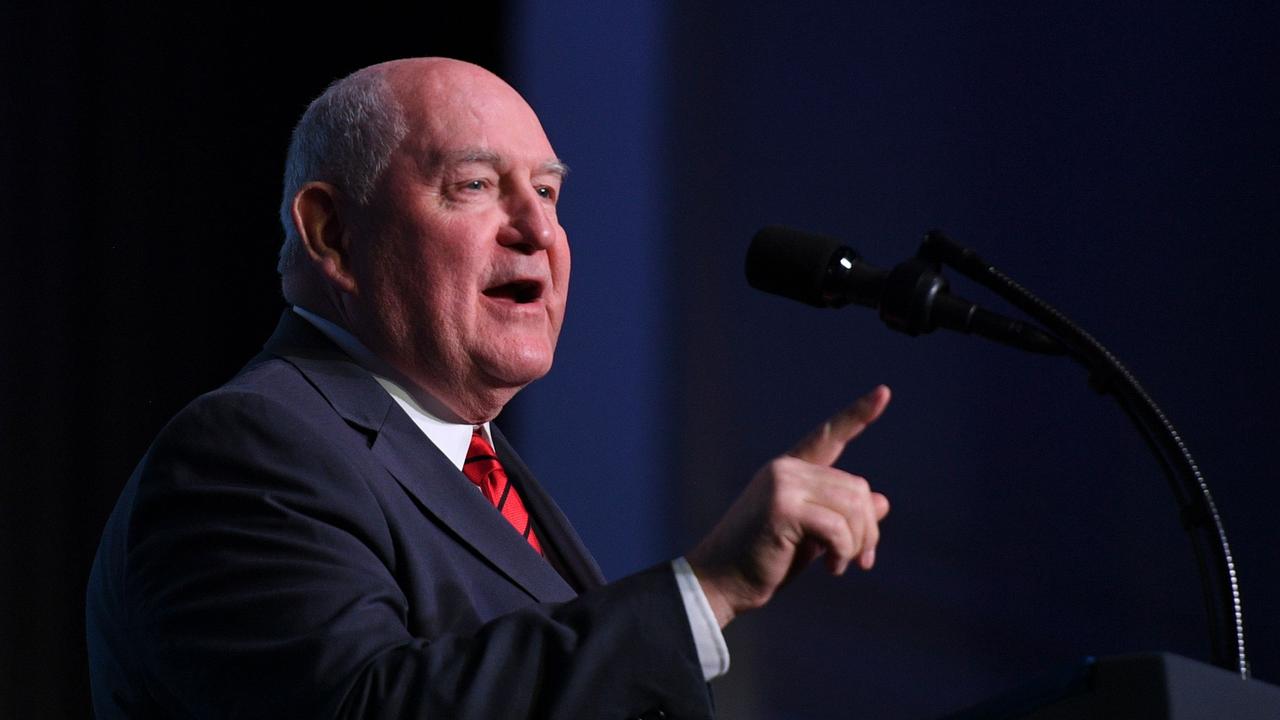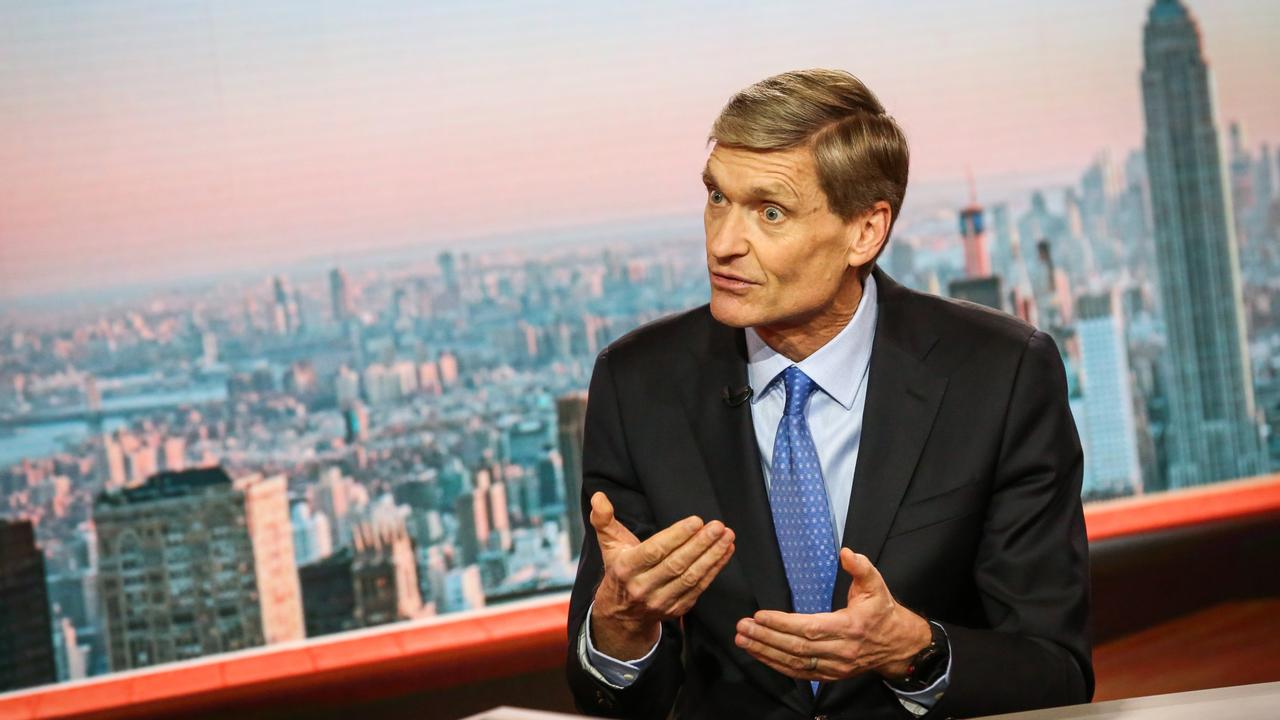Global Food Forum: energy mess mars our image as agricultural king
We should all be screaming like banshees about why this country cannot deliver an energy policy to move it forward.
For some of the great moments at The Australian’s Global Food Forum, look no further than the two highly influential global business leaders. First the visionary behind the forum, billionaire Anthony Pratt who has been calling for a doubling of Australian agri exports and used today to blow wind into the sector’s sails in both tech and trade. Mr Pratt announced a new ag tech program called “no fruit left behind” targeted at horticulture and is also putting $500,000 as a founding patron of the Australia-UK Leadership Dialogue calling for a free-trade agreement between the two nations. As business leader David Farley remarked, how great it is to have an agrifood champion from outside the food sector. Interesting too, that the packaging king who has built businesses both here and the US is now turning his attention to Britain post Brexit.
The outstanding keynote was delivered by Olam co-founder and chief executive Sunny Verghese, for forty minutes without notes. Over thirty years, Mr Verghese has grown Olam into a $20 billion global giant, majority owned by the Singapore government’s Tamasek. Olam operates in 70 countries, from farming to commodities trading and food processing. Verghese’s matter of fact delivery put this into perspective.
“We grow, harvest and process enough tomatoes and tomato paste such that it can top about 3.2 billion pizzas a year. We are today the world’s largest green coffee bean supplier so we supply enough coffee to provide two cups of coffee a week for everybody on this planet.”
Olam also has a big footprint in Australia, a $1.2bn investment — Olam is the second largest water holder (after the Chris Corrigan driven Websters), it’s the biggest almond grower in the country and a player in cotton. It was hard not to be impressed by the insights Verghese has across his supply chains and across commodities, using his powerful data, and also his forward thinking on both demand and supply, environmental intelligence, purpose, global responsibility.
Where Verghese is uncompromising is in his long-term investment thinking. “My investors were telling me, ‘I hold your stock for five or six months. You’re investing in projects that have a gestation of seven or eight years. What gets into your head to make such distant return commitments?’ And I say, ‘We are managing this business for a continuing owner, and we are developing a strategy, making an investment choice and capitalisation decisions from that vantage point. And if you don’t like it, you should not be investing in Olam.’ And that is why we dramatically changed our shareholding structure”.
He went on to say: “25 of us control about 90 per cent of the company. We all believe in the prospects of the agriculture complex.” It’s that sort of thinking which could deliver a step change for Australian agriculture.
The Olam chief otherwise could not have been more enthusiastic about Australian know-how. Our farmers are the best in the world. And this is heartening, given his money is behind these words in Aussie land and water investment. “I believe that Australia is the most advanced and most innovative agricultural nation in the world, and partly it is because Australia resisted the temptation to subsidise food production. If there is a criticism from Verghese, it is our recalcitrant energy prices, “Among the 70 countries that we operate, in Australia we pay the highest electricity costs. The power transmission, power production, energy production system in Australia is broken. Fifteen per cent of the costs of production of almonds for us is power and energy costs and we are completely helpless.”
Rod Sims the competition regulator was also at the conference and described our energy mess as the greatest crisis the country faces. The take out from the day? If Australian agrifood is to meet the sort of targets that Pratt or indeed the National Farmers Federation Talking 2030 an aspirational goal of agriculture at $100bn, then we should all be screaming like banshees about why this country cannot deliver an energy policy to move it forward.
Ticky Fullerton hosts Ticky weekdays on Sky News Business
at 5.30pm.


